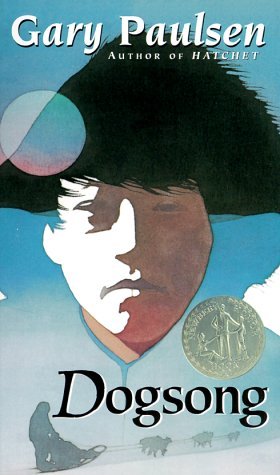
Brian's Hunt
Book Description
Survival, danger, and the relentless pull of nature collide when Brian faces the wilderness once more. Armed with only his instincts and skills, he embarks on a gripping hunt that reveals more than just the thrill of the chase. Shadows from the past loom large as he navigates the treacherous terrain, battling not just the elements but also the haunting memories of loss. Every moment is a test of strength and resolve, pushing him to the brink. Can Brian conquer his fears and unlock the resilience that lies within, or will the wilderness claim him once and for all?
Quick Book Summary
In "Brian's Hunt," Gary Paulsen returns his protagonist, Brian Robeson, to the wild in a gripping continuation of the Hatchet saga. Brian, now deeply at home in the Canadian wilderness, cherishes the solitude and self-reliance the land demands. While living off the land by hunting, fishing, and foraging, Brian discovers distressing signs hinting at trouble nearby. Following these clues, he learns of a devastating bear attack on friends he holds dear. Joining the hunt for the menacing animal responsible, Brian faces an exhilarating and dangerous challenge that tests both his survival skills and emotional resilience. Through his journey, Brian confronts both the physical dangers of the wilderness and the lingering psychological effects of past traumas, ultimately reaffirming his deep connection to nature and his inner strength.
Summary of Key Ideas
Table of Contents
The Enduring Challenge of Survival
Brian Robeson has become a master of wilderness survival since the events that first drove him into the Canadian wilds. At the start of "Brian's Hunt," he voluntarily returns to nature, seeking solace from the complexities of human society. His days are spent traveling by canoe, hunting, fishing, and refining the skills that once saved his life. The peaceful rhythm of his solitary adventure is interrupted when Brian senses something is amiss as he discovers an injured dog, signaling unknown danger and drawing him toward the heart of a new, pressing challenge.
Confronting Fear and Trauma
Concern for the dog's injuries compels Brian to investigate, prompting memories of past brushes with peril—including his harrowing encounters with wildlife. Guided by intuition and compassion, Brian follows the trail, hoping to warn his friends, the Smallhorn family, who live deep in the wild. The wilderness, once a nurturing yet demanding home, again turns threatening, and Brian must summon all of his knowledge and courage. His journey is as much about forging ahead into uncertainty as it is about grappling with the emotional weight of responsibility and fear.
Moral Responsibility to Others
The discovery of tragedy—a bear's violent attack on the Smallhorn family—pushes Brian into a dire quest for justice and safety. The reality of danger intensifies as Brian realizes he must act swiftly to protect himself and others. He prepares meticulously, setting out to track the bear, relying on his deep understanding of animal behavior and survival tactics. The hunt becomes a powerful symbol of Brian’s confrontation with both external threats and internal demons, including the lingering trauma from his own plane crash.
The Complex Relationship between Humans and Nature
Throughout his pursuit, Brian navigates ethical dilemmas about humanity’s place in nature. He respects the wilderness and its creatures, even as he recognizes the necessity of his mission. Paulsen explores the blurred lines between hunter and hunted, and the importance of judging when to intervene in natural cycles. Brian’s actions reflect a sense of duty—not only to his friends but also to the delicate balance of the environment that he has come to cherish and understand.
Healing and Growth through Adversity
By the end of the story, Brian’s successful confrontation with the bear is less a triumph over nature than a step toward harmony with it and with himself. He feels the impact of loss but emerges from his ordeal with a deeper sense of acceptance and maturity. The wilderness, with its beauty and brutality, becomes both proving ground and healer. Brian’s hunt reveals that resilience comes not just from surviving danger, but from facing grief and forging meaningful connections, ultimately underscoring his enduring bond to the land and his own inner strength.
Download This Summary
Get a free PDF of this summary instantly — no email required.





